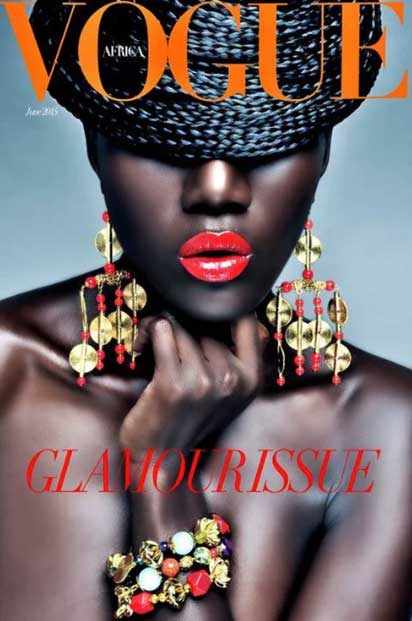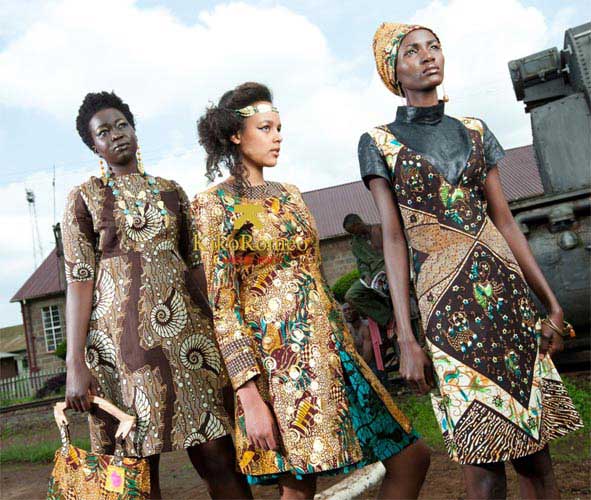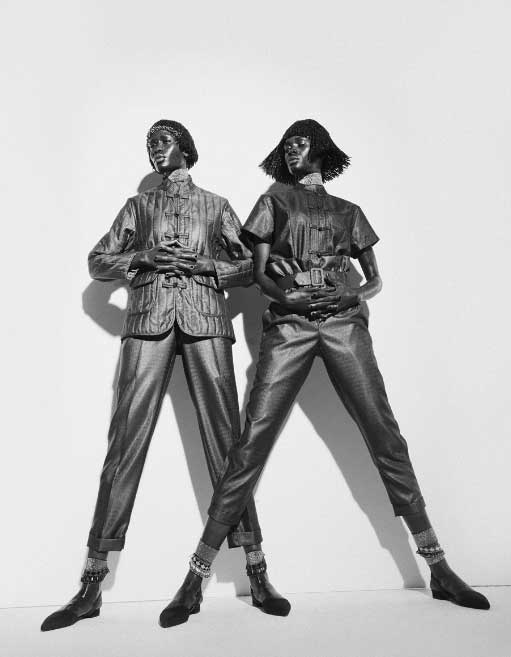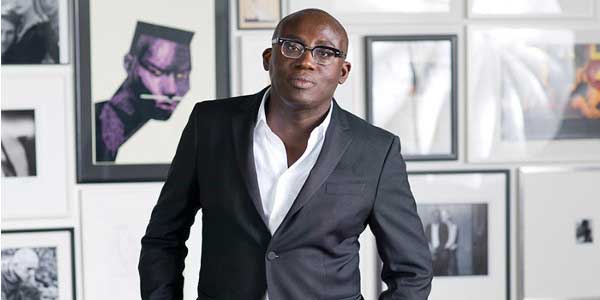IT’S OFFICIAL: VOGUE IS FINALLY COMING TO THE MOTHERLAND

There is a scramble for Africa happening right now, but it isn’t over diamonds, gold or ivory. International fashion lovers have turned their long, overdue attention to the continent and found a sophisticated market brimming with talented designers – finally putting to bed the outdated idea that African fashion is about little more than beaded skirts or tribal prints.
Meanwhile, international brands are waking up to the fact that Africa is a potential goldmine. The Nigerian economy is one of the fastest growing in the world – and as an estimated 70 per cent of the population is under 30, it is an easy target for any youth-focused fashion label. In South Africa, the local luxury sector generated a revenue of approximately US$2.2 billion last year, and the ready-to-wear designer slice of the market is estimated to be worth $600 million.
“International brands are waking up to the fact that Africa is a potential goldmine”
So the question on everyone’s lips: how does Africa still not have a Vogue? The luxury high-fashion glossy is a marker of a region’s fashion success: where the Condé Nast–owned magazine leads, an entire fashion eco-structure soon follows. In recent years, we have witnessed the launch of Vogue Korea, Vogue Turkey, Vogue Mexico and Vogue China in response to the sophisticated boutiques, talented designers and photographers who are developing in these countries.

One problem that the Condé Nast publishers have battled against is that no single country in Africa has been completely ready to take on the Vogue mantle. Neither Nigeria nor Kenya have strong enough domestic industries to support their own Vogue. South Africa, which is home to the biggest publishing houses on the continent, would be the most obvious choice; but for years, its luxury fashion scene was still deemed too small.
However, after the launch of Vogue Arabia a few years ago, the question of a Vogue Africa that encompasses the whole of the sub-Saharan continent has changed the entire nature of the discussion. Vogue Arabia is published out of Dubai and is overseen by Condé Nast International in London. Its readership, however, covers all Arab-speaking countries, from Saudi Arabia and Oman to Egypt and Lebanon.
African fashion lovers have suggested a Vogue Africa operating under a similar system would not only bring vast international publicity to Africa’s burgeoning designers, writers and photographers, but it would also mark Africa’s entrance on to the global fashion stage – not to mention the fact it would be a wonderful publication to read.

But where should this Vogue Africa be based out of? South Africa, again, is the obvious choice – partly because local fashion is now booming. Designers such as Nicholas Coutts, Thebe Magugu, AKJP, Lukhanyo Mdingi, Joel Janse Van Vuuren and Avant Apparel are creating a bold, new South African aesthetic. More established, much-loved local names who grace the pages of local glossy magazines include MaXhosa by Laduma, Kluk Cgdt, David Tlale, Thula Sindi, Stefania Morland, Black Coffee and Marianne Fassler.
However, while South Africa has the most advanced fashion industry on the continent and a strong history of fashion and publishing collaborations, it is also something of a bubble – plus, it’s a significant distance from the major West African capitals. Cape Town, the country’s beachy publishing hub, also feels entirely out of step with the aesthetic that Vogue Africa would be looking for.
“The companies that get aligned with the whole of Africa are the ones that will do well”
Ann McCreith
“The companies that get aligned with the whole of Africa are the ones that will do well”, says Ann McCreith, the Nairobi-based owner of fashion brand KikoRomeo. “The ones who stay in South Africa won’t survive if they don’t understand what’s happening up here.”
However, questions have been raised as to whether Lagos or Nairobi have the publishing infrastructure to create a magazine that will need to photographed, written and edited to international standards.
Condé Nast International in London will play a major role in the launch, and fashion insiders have mooted the idea that Edward Enniful – the editor of British Vogue and the first black editor to have taken the helm at the storied publication – would oversee the initial Vogue Africa shoots. Born and brought up in Britain, his parents come from Ghana, and he maintains strong ties with the country. He also works closely with British models and writers Adoah XX and Naomi Campbell, who are also rumoured to be getting involved.

“Africa is too big, too creative and too dynamic not to play a major part in the international cultural scene. Anyone who ignores the continent is going to miss out in a major way”, says Nigerian-born Kolade Adeyemo, who, along with Akin Adebowale, has launched Oxosi, the first premium e-commerce platform that delivers luxury African fashion brands to the world.
“Africa is too big, too creative and too dynamic not to play a major part in the international cultural scene. Anyone who ignores the continent is going to miss out in a major way”
Kolade Adeyemo
“It’s because big brands are still scared of the jungle. They have this fear of going into Africa because they’re not culturally aware – and they think that if they do it, it’s going to be really expensive and might fail. And sure, it’s a complex, multi-layered experience, but you can navigate it if you bring in local people. I think a Vogue Africa would change people’s entire perception of African fashion.”
There is now little doubt that we will be flipping through the pages of a Vogue Africa in the next five years. And once it arrives – wherever that may be – it will bring an entirely new fashion visitor to the country. Cities such as Seoul and Dubai have watched their tourist numbers increase to a staggering degree in response to their vaunted boutiques and department stores. Vogue Africa would finally allow a similar creative blossoming on home soil.











